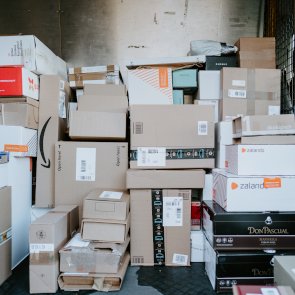5 Common Causes of Customs Delays
 International shipping time depends on many factors, one of which is customs clearance. Prolonged processing time or hold-ups at customs may result in shipping delays, so it is important to know why customs delays happen and what you can do to minimize their impact. Here are 5 common causes of customs delays.
International shipping time depends on many factors, one of which is customs clearance. Prolonged processing time or hold-ups at customs may result in shipping delays, so it is important to know why customs delays happen and what you can do to minimize their impact. Here are 5 common causes of customs delays.
Customs clearance is the official process where international packages arriving into a country are inspected, approved, and released by customs authorities. In order for a shipment to be approved and sent on its way to the recipient, it must comply with local import regulations, be accompanied by the necessary documentation, and have the required duties and taxes paid. Customs delays occur when at least one of these conditions is not met or if there are other complications or obstacles during customs clearance. Let’s take a closer look at the most common reasons for customs delays.
Import Regulations and Restrictions
When it comes to international shipping, there are several types of restrictions and prohibitions. Some restrictions and prohibitions are international, and some are country-specific, so there may be a situation when certain goods are not restricted/prohibited in the country of origin but they are restricted/prohibited in the destination country. If a package contains such items, it will get held up at customs. Customs authorities will not clear prohibited items, but restricted items may be cleared when the necessary documentation (certificates, permits, etc.) is provided and the applicable duties and taxes are paid.
Incomplete or Erroneous Documentation
Accurate and complete documentation is the prerequisite for customs clearance. A customs declaration is the absolute minimum required to clear a shipment; it contains the following information:
- Sender’s and recipients names and addresses
- Type of package contents (gift, merchandise, documents, commercial sample, etc.)
- Detailed description of contents, including the quantity, weight, and value of each item
- Total weight and value of contents
Erroneous or missing information in the customs declaration is one of the most common causes of customs delays. Common documentation errors include incorrect or inconsistent product descriptions, inaccurate weights, quantities or values, and incomplete addresses.
Commercial shipments typically require a commercial invoice in addition to the customs declaration form, and certain goods may require special documentation such as certificates, licenses, permits, etc. to comply with the destination country’s import regulations. If a package lacks the necessary documents, it will get held up at customs.
Unpaid Duties or Taxes
Customs authorities impose duties and taxes on imported goods to generate revenue; the assessment of these duties and taxes depends on the characteristics and declared value of the goods, as well as other factors. Many countries have a duty-free limit for recipients, which means that recipients are not charged anything if the value of their parcel does not exceed a certain threshold. However, if it does, the customs will not release the parcel until the recipient pays the required duties and taxes.
High Volume of Shipments
A high volume of shipments generated by holidays, seasonal sales, and other events can increase the number of incoming shipments, leading to the so-called peak seasons. During peak seasons, customs offices may experience resource constrains, which results in processing backlogs and extended waiting times for recipients.
Geopolitical Factors and Other Force Majeure Circumstances
The customs clearance process can be affected by quite a lot of factors. For example, changes in government polices or trade disputes between countries can lead to changes in customs regulations and procedures, which, in turn, lead to increased scrutiny of imported goods, implementations of changes and adjustment of customs procedures, longer clearance time due to inspections, etc. Customs operations can also be impacted by political unrest or instability (labor strikes, protests, civil unrest), pandemics, extreme weather conditions and natural disasters, etc.